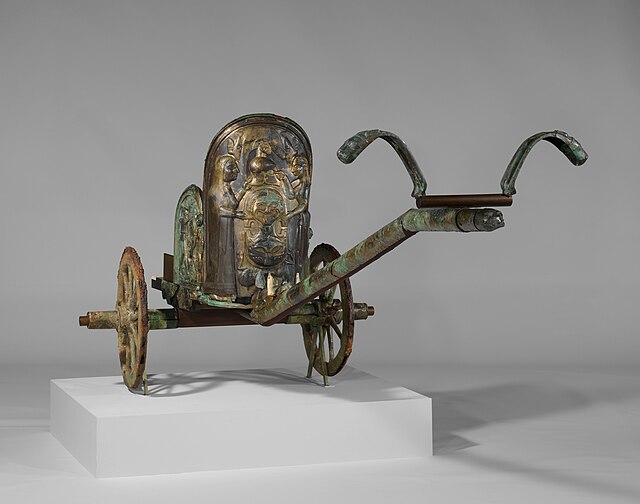The Etruscan civilization was an ancient civilization created by the Etruscans, a people who inhabited Etruria in ancient Italy, with a common language and culture who formed a federation of city-states. After conquering adjacent lands, its territory covered, at its greatest extent, roughly what is now Tuscany, western Umbria, and northern Lazio, as well as what are now the Po Valley, Emilia-Romagna, south-eastern Lombardy, southern Veneto, and western Campania.
Biconical cinerary urn with crest-shaped helmet lid, 9th–8th century BC, from Monterozzi (Fontanaccia), Tarquinia, Museo archeologico nazionale
Urn in the shape of a hut, which represents the typical Etruscan house of the Villanovan phase, 8th century BC, from Vulci, Musée d'art et d'histoire de Genève
Monteleone chariot, one of the world's great archaeological finds, 2nd quarter of the 6th century BC
Etruscan pendant with a large equilateral cross of concentric circles flanked by four small right-facing swastikas among its symbols from Bolsena, Italy, 700–650 BC. Louvre
Etruria was a region of Central Italy delimited by the rivers Arno and Tiber, an area that covered what is now most of Tuscany, northern Lazio, and north-western Umbria.
Etruscan votive heads found in various sanctuaries throughout Etruria and dating from the fourth century BC through the second century BC




